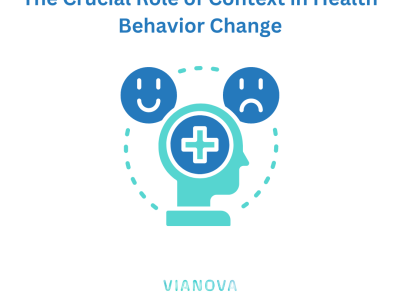
The Psychological Impact of Chronic Illness: A Behavioral Economics Perspective
Living with a chronic illness can be emotionally and psychologically challenging, as individuals often grapple with a host of uncertainties, lifestyle changes, and medical decisions. From a behavioral economics standpoint, the psychological aspects of managing chronic illness are particularly intriguing as they involve cognitive biases, such as optimism bias and present bias, which can profoundly affect coping mechanisms, decision-making, and overall well-being. In this article, we will delve into the emotional and psychological aspects of chronic illness through the lens of behavioral economics, shedding light on how these cognitive biases can impact the lives of those affected.
Optimism Bias and Chronic Illness
Optimism bias, a common cognitive bias, is the tendency for individuals to overestimate the likelihood of positive outcomes while underestimating the probability of negative ones. In the context of chronic illness, optimism bias can manifest in several ways:
1. Treatment optimism: Many individuals living with chronic illnesses maintain an optimistic outlook, believing that their treatment plans will be more effective or less arduous than they turn out to be. This can lead to disappointment and frustration when reality does not align with their overly positive expectations.
2. Long-term prognosis: Optimism bias can cause individuals to believe that their condition will improve or stabilize over time, even when medical evidence suggests otherwise. This can lead to a delay in making necessary lifestyle changes or seeking appropriate care.
3. Risk perception: Patients may underestimate the potential risks associated with their condition or its treatment, leading them to take unnecessary risks with their health or neglect preventive measures.
Understanding how optimism bias operates in the context of chronic illness is crucial for both patients and healthcare providers. It highlights the need for open and honest communication about the disease’s progression, potential treatment outcomes, and realistic expectations.
Present Bias and Chronic Illness
Present bias is another cognitive bias that can have significant implications for individuals managing chronic illnesses. It refers to the tendency to prioritize immediate rewards or relief over long-term benefits. In the context of chronic illness, present bias can manifest in various ways:
1. Medication non-adherence: Patients may be more inclined to skip medication doses or ignore dietary restrictions if they perceive the short-term discomfort of adhering to their treatment plan as outweighing the long-term benefits.
2. Procrastination of lifestyle changes: Making necessary lifestyle adjustments, such as adopting a healthier diet or exercise routine, can be challenging for individuals with present bias. They may struggle to prioritize these changes over immediate gratifications.
3. Avoidance of emotional aspects: Individuals with chronic illnesses may avoid addressing the emotional and psychological aspects of their condition, such as anxiety or depression, as these issues may not produce immediate relief.
Addressing present bias in chronic illness management requires strategies that help patients bridge the gap between short-term and long-term rewards. Healthcare providers can play a vital role in guiding patients toward effective self-management techniques and coping strategies.
Impact on Overall Well-being
The psychological impact of chronic illness, compounded by cognitive biases like optimism bias and present bias, can significantly affect an individual’s overall well-being. Unaddressed biases can lead to emotional distress, frustration, and decreased quality of life. It’s crucial for patients to recognize these biases within themselves and seek support, whether through therapy, support groups, or counseling, to navigate the complex emotional landscape of chronic illness.
Understanding the psychological impact of chronic illness from a behavioral economics perspective sheds light on how cognitive biases like optimism bias and present bias can influence coping mechanisms, decision-making, and overall well-being. It emphasizes the importance of realistic expectations, open communication, and tailored interventions to help individuals effectively manage their chronic conditions. By acknowledging and addressing these cognitive biases, individuals living with chronic illnesses can enhance their quality of life and better navigate the challenges they face.



FEEL FREE TO DROP US A LINE.